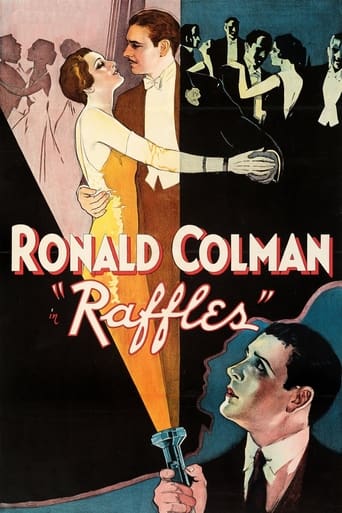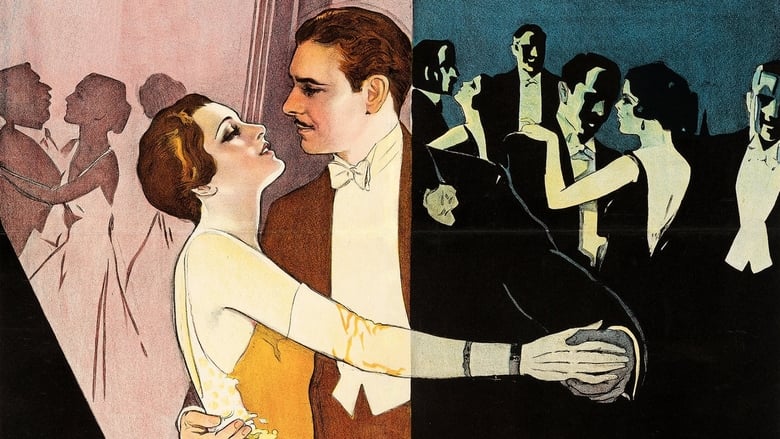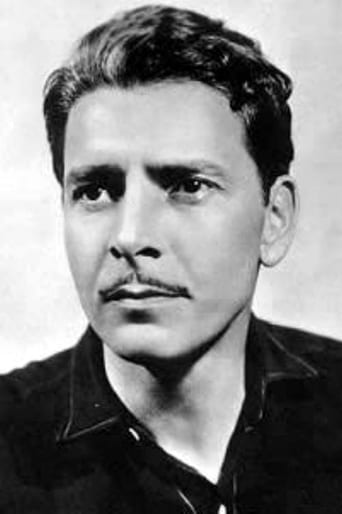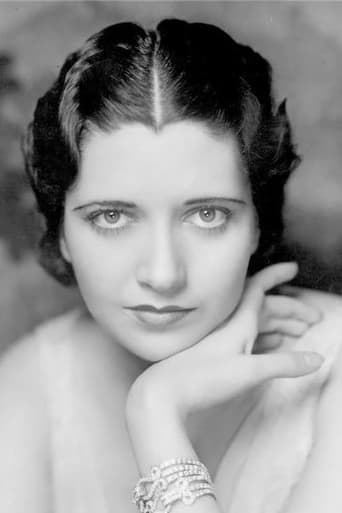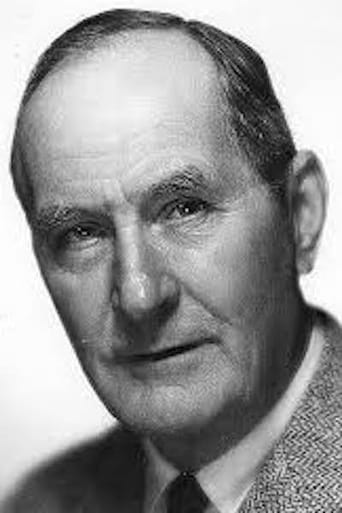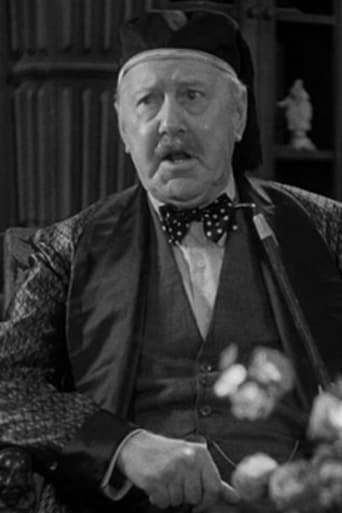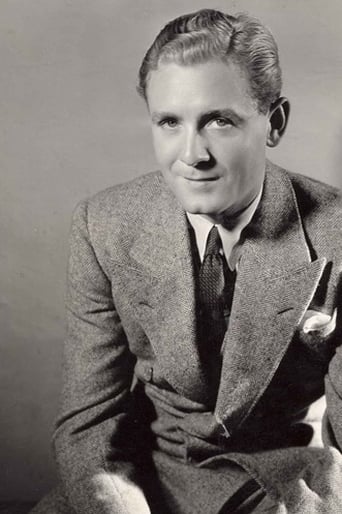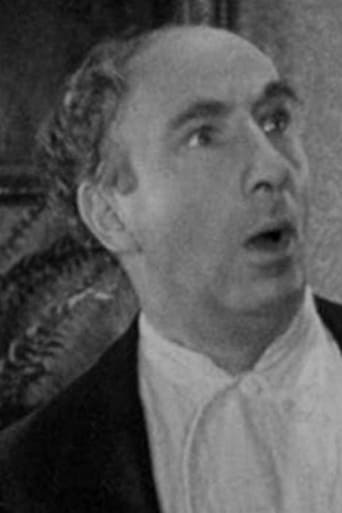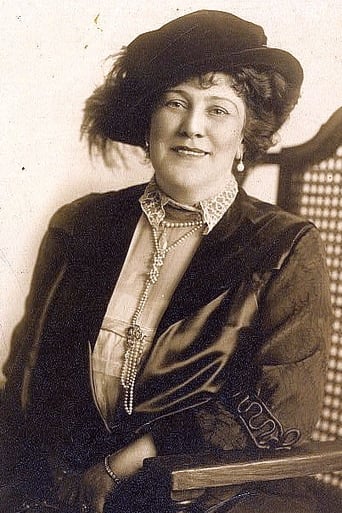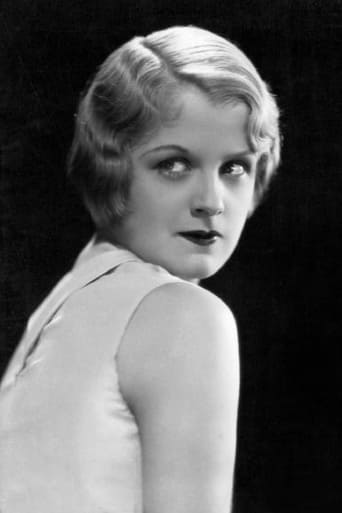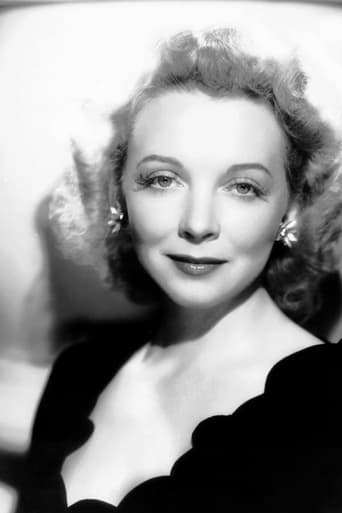A distinguished English gentleman has a secret life--he is the notorious jewel thief the press has dubbed "The Amateur Cracksman". When he meets a woman and falls in love he decides to "retire" from that life, but an old friend comes to him with a predicament that entails him committing one last job.


Similar titles
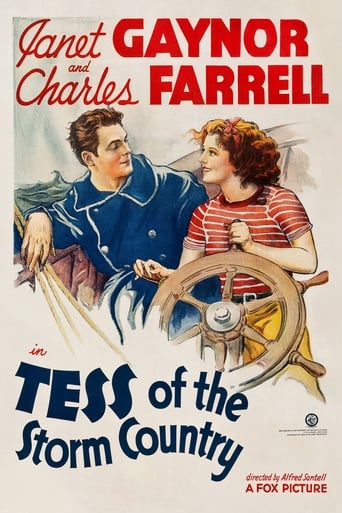

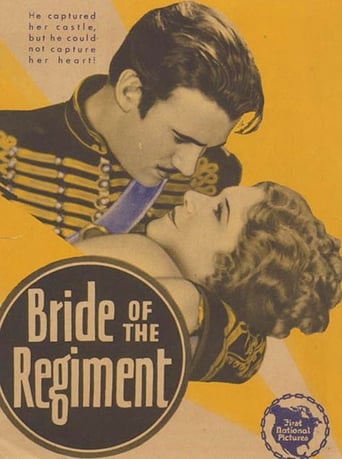
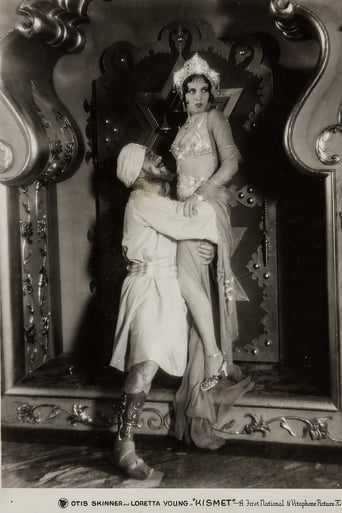
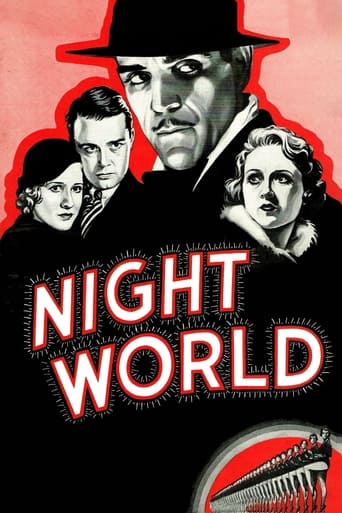
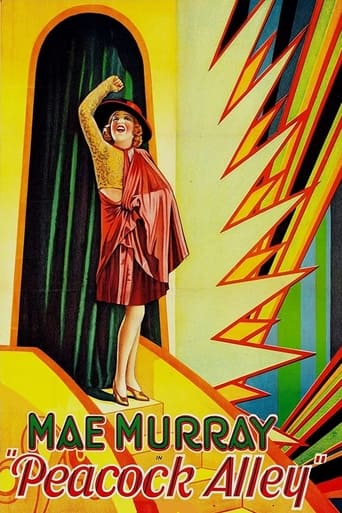
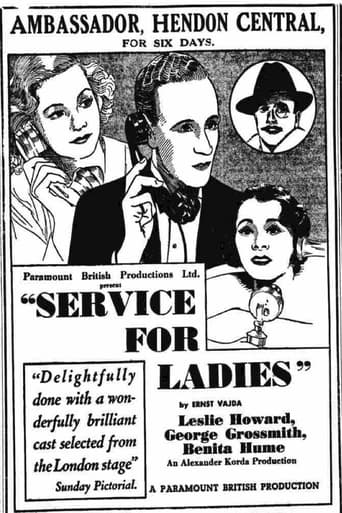
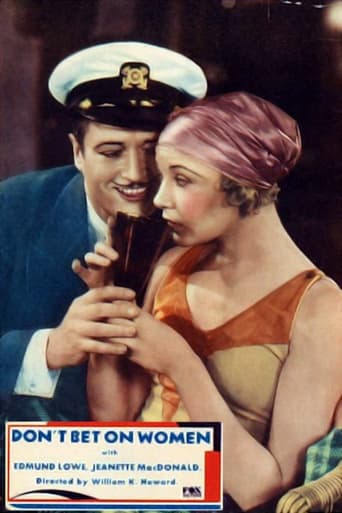
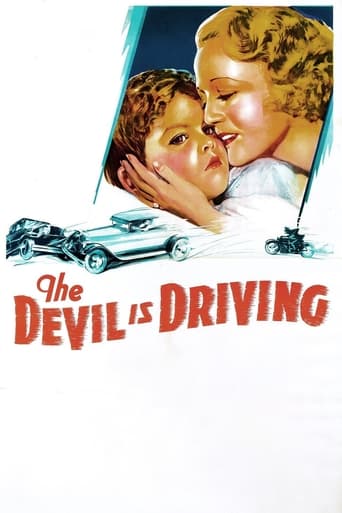
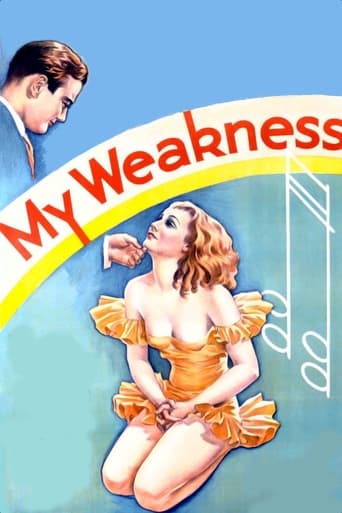
Reviews
This is the first sound picture made about the gentleman thief, A.J. Raffles, created by English author E.W. Hornung. It's also among the first movies made of a caper comedy. It was only natural that this story would be remade so soon (and more versions made later), so it's also natural to compare this film with the 1939 movie. First, I think all the actors did well in both films. But some of the roles are quite different between the films. I don't know to what extent either film stayed close to the novel, or improvised. This 1930 "Raffles" suffers some in its production. It has at least two plot holes. One is left guessing why something happened a certain way. In the 1939 film, the plot spells it out. I suspect that was a difference in the screenplay and the directing or editing. So, the 1939 film is a notch better than this one, for its continuity and fluidity – the smoothness of the story. One thing about Hornung's "amateur cracksman" seems obvious. He really is an amateur. Both of these films show how easily Scotland Yard is able to get onto him. Both actors who play the inspector are quite good. In this film, David Torrence is Inspector McKenzie. In the 1939 film, Dudley Digges plays an inspector whose name is spelled MacKenzie. Torrence is very funny in his role, as the modestly egotistical Scotland Yard man. In the second film, Digges has more of a role that shows his cunning. I think Ronald Colman is the better A.J. Raffles, especially with his spritely movements. He gives one a sense that this guy could easily climb terraces, hang from ropes, or do other acrobatic feats to gain entry for nighttime robberies. David Niven doesn't give the same sense, yet his character is very likable and affable with his butler and people of a lower class. Kay Francis is OK in this film as Gwen, a doting woman in love with Raffles. But her part is not very big, and there's little more to it than that. Olivia de Havilland's Gwen in the 1939 film is much more vibrant. And, she has a meatier role that gives one much more of a sense of love between she and Raffles. The supporting casts are good, but also have quite different roles to perform. E.E. Clive in the 1939 film is far superior as Barraclough, the butler to Raffles. Wilson Benge is almost unnoticed in that role in this 1930 film. But, again, Clive is given a much meatier part, especially with one scene with some substantial dialog. Both Lord Melrose and Lady Kitty Melrose are superior in this 1930 film, as played by Frederick Kerr and Allison Skipworth, respectively. Although Dame May Witty had the Lady Melrose in the 1939 film, I suspect she and Lionel Pape (as Lord Melrose) had their parts tuned down some, for more attention to be given to Gwen, Inspector MacKenzie and Barraclough. If one could mix and match between the two films, I would like to have seen a film with the second screenplay, but some role and character changes. Ronald Colman would play Raffles opposite de Havilland as Gwen. Allison Skipworth and Frederick Kerr from this film would be the Lady and Lord Melrose, with their lines from this film. David Torrence would move Into the inspector role, taking his one scene about his expertise with him to the role in the 1939 film. And Barraclough would stay as he is in the 1939 film, with E.E. Clive in the role. Both actors who played Bunny were very good, but I think Bramwell Fletcher from this 1930 film portrayed more a sense of worry and seriousness of his financial problem E.W. Hornung's stories about AJ. Raffles, a gentleman thief, were set in late 19th century London. This first sound production of Raffles, departs considerably in that it has automobiles and airplanes. Inspector McKenzie hurries back to London by airplane. It is obviously set around 1930. Horning introduced Raffles in his first story in 1898, "The Ides of March," which was printed in the June issue of Cassell's Magazine. The titles of subsequent stories were all tagged with the label, "Adventures of the Amateur Cracksman." Seven were published in Scribner's Magazine during 1901. In 1899, a short story collection, "The Amateur Cracksman" was published. Another short story collection followed in 1906 – "Raffles, The Amateur Cracksman."In 1903, Hornung wrote a play "Raffles, The Amateur Cracksman" that was first performed Oct. 27, 1903, at the Princess Theatre in New York. In 1909 he wrote another play, "A Visit From Raffles," that was first performed at the Brixton Empress Theatre in London. In 1909, Hornung published a novel, "Mr. Justice Raffles."Here are some favorite funny lines from this film. For more humorous dialog, see the Quotes section under this IMDb Web page for the movie. Lord Melrose, "Well, like a lamb to the slaughter I go." Lady Kitty Melrose, "Did you say lamb, Harry dear?" Lord Melrose, "Well, mutton, if you like, darling." Inspector McKenzie, "Don't misunderstand me, Mr. Raffles. I have a high opinion of myself. You see, uh I'm a criminologist and a Scotsman. Heh. The Scots enjoy feelin' they're cleverer than other people, and they are cleverer. My own cleverness often amazes me." Lady Melrose, "Are we all to be murdered in our beds?" Inspector McKenzie, opening a door to another room, "Library, eh?" A.J. Raffles, "Yes for books."Inspector McKenzie, looking through a door into another room, "This is the bath, eh?" Raffles, "Yes. Uh, go straight in. I'm not bathing now."
RAFFLES is another version of the E.W. Hornung novel about a famous jewel thief who gets caught up in a scheme to help out an old debt-afflicted friend as well as falling in love and vowing to give up his life of crime. It stars man-of-the-moment Ronald Colman in a likable performance as the titular character, in fact more charismatic than David Niven was in the 1939 remake of this movie.The main problem I have with RAFFLES is how dated it feels to the modern viewer. Made as an early talkie, it lacks a musical soundtrack and suffers from quite poor sound quality too. This slows the production down quite considerably at times and occasionally makes the acting feel stilted; it doesn't help that this was still of an era when the actors would project themselves to deliver larger-than-life performances, in other words 'playing to the back row'. Still, this film isn't all bad, and there are some good twists and turns along the way, but I never quite bought the antagonist/protagonist duality of the main character.
This early talky really sucked me in and I highly recommend it. I'm kind of a naive Coleman fan from Lost Horizon and a movie that had me uncontrollably crying for real in Random Harvest, so this was a really good Coleman vehicle to enjoy. I pick his movies to watch with my wife so I call them date films and I'm sure that's what they were when they were first shown in the theaters. I wasn't too sure either when it first started because this is a real early talky when the prints were rough, in evidence the fish eye lens. But the sets are magnificent along with the cars and the clothes so it is a first rate production which was great. I loved all the booze in the beginning of the film, since it was in England they could do that, it must have made many an American audience thirsty during prohibition! My wife and I really got into it on a night when either of us could have easily passed on another old movie (we watch too many of them I think, it's my fault, lol), I guess we are suckers for cliffhanger jewel heist movies and who isn't? We would have liked to have seen the couple reunite in Paris, but I told my wife it was because of the censor and to just be happy he got away and wasn't gunned down by the law, lol, which even though this is pre code may be the case why there was no Paris scene to end it. Still, despite it being early talky quality, the sets, supporting cast, and Ronald Coleman make it raise way above my expectations. Highly recommended, 9 of 10.
The early Goldwyn Colman films had a lovely atmosphere all of their own. Just learning to cope with sound they exhibit an echoey creaky staginess which in turns is charming and irritating when watching a romantic adventure/mystery. Every action was pointed and often laboured with the handed down techniques from silent days, meaning once seen you seldom forget it. It's the same with Raffles, a ridiculous script if there was one (heavily mucked about with from the book) but if you don't see it for 20 years you'd probably remember every act and scene.Raffles has been a reformed ex-Cracksman for a few hours but finds he suddenly has to help his limp friend Bunny repay £1000 within 2 days and he only knows one way to get it. An invite to Lady Melrose's country house for cricket and a garden party of hundreds provides him with the chance and also a gang of six ineffectual Cockney burglars who skulk around in the dark loudly laying their plans. The scene where the burglar is caught and venomously points out Raffles on the stairs is pivotal to the film but it never recovers from the clumsy handling of it did Colman know what to say at that point? Colman was great in the role, his clipped accent and perfect diction usually used to good effect. Good support was from Kay Francis who played his understanding girlfriend although she didn't get to say Divine, and David Torrence the chunky and heavily cloaked Scotland Yard Inspector. Favourite bit: the torchlit confrontation between Raffles and Crawshay in the bedroom at midnight.Simple old fashioned entertainment - I stick it on every few years without fail because with all its faults I like this one.
